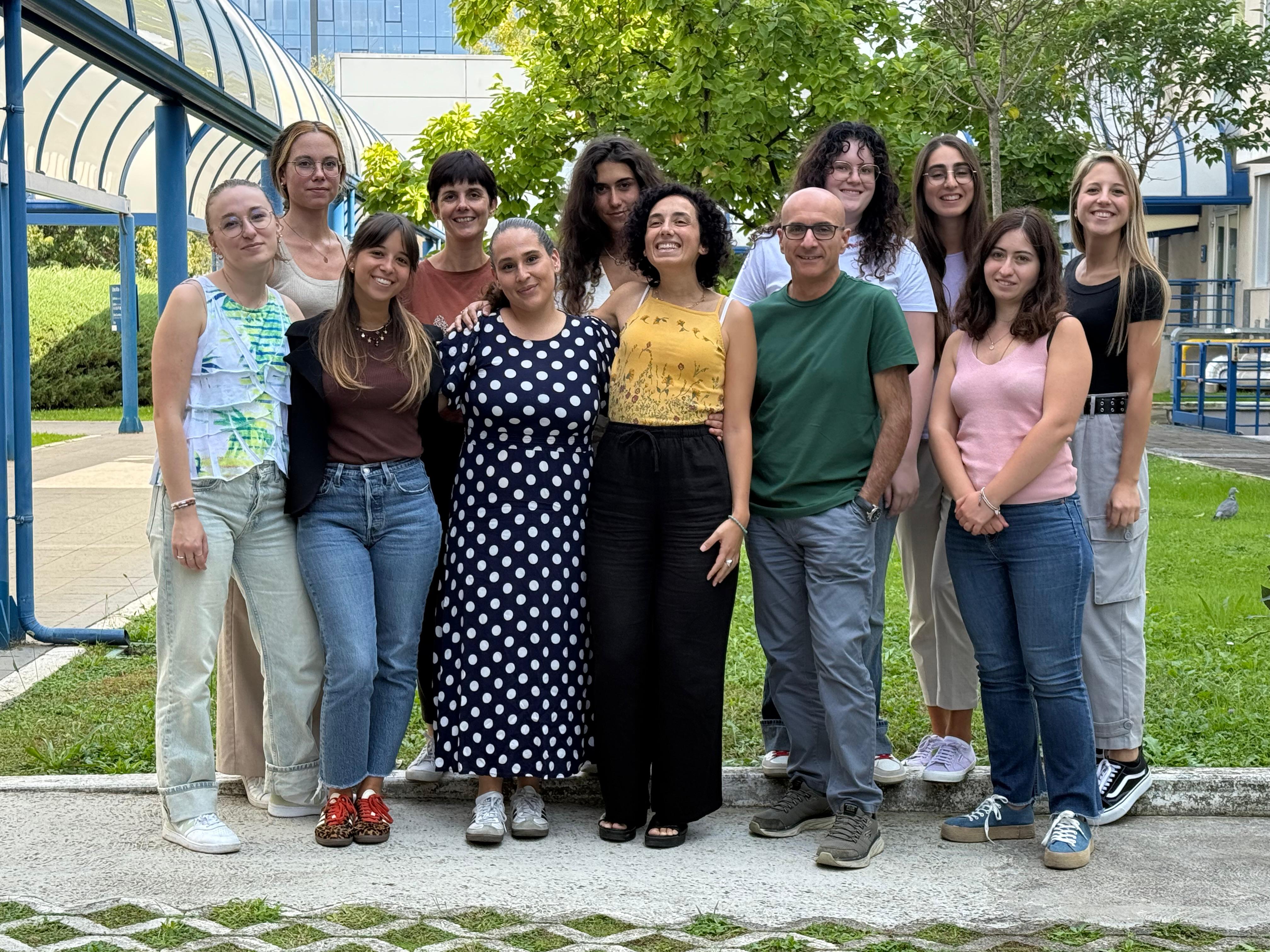Unit of Gynecological Oncology Research

Ugo Cavallaro
Unit Director
| [email protected] | |
| Telephone | +39 02 9437 5165 |
| Location |
Building 13
Floor 3rd Via Adamello 16, Milano |

Ovarian cancer (OC) remains an outstanding challenge in clinical oncology, mainly due to the lack of prevention and early diagnosis strategies and the high rate of recurrence and chemoresistance. Experimental and clinical evidence supports the hypothesis that OC relapse and drug resistance are fueled by a subpopulation of ovarian cancer stem cells (OCSC) and, hence, targeting OCSC function may lead to OC eradication. We are pursuing the identification as well as the molecular and functional characterization of OCSC, aimed at defining their biomarkers and possible therapeutic targets.
Another key aspect of OC malignancy is the role of tumor microenvironment (TME), which has emerged as a crucial player and a viable target for new therapies. Signals coming from the peritoneal microenvironment sustain OC proliferation and modulate its response to therapies, as well as the acquisition of stem-like properties. Thus, our group is exploiting organotypic models in which OC cells are cultured together with components of the peritoneal TME to dissect the crosstalk between the tumor and its stroma, in order to identify novel therapeutic targets.
The blood vessel network represents another crucial component of the TME, in that it provides an essential support to the growth of primary tumor and metastatic implants. Such a role entails also the establishment of perivascular niches for OCSC. Our group is interested in studying novel biological mechanisms that govern OC-associated vascularization and, in particular, the crosstalk between the vasculature and OCSC. The ultimate objective is the discovery of molecular pathways that can be modulated pharmacologically in order to interfere with the protumorigenic function of this interplay.
Our Unit is fully integrated into the IEO Gynecology Program, where the close collaboration with the clinical staff not only provides access to patient-derived samples but it also facilitates identifying clinical unmet needs and focusing on disease-relevant questions.
Most Relevant Publications
-
Franciosa G, Nieddu V, Battistini C, Caffarini M, Lupia M, Colombo N, Fusco N, Olsen JV, Cavallaro U
Quantitative proteomics and phosphoproteomics analysis of patient-derived ovarian cancer stem cells.
Mol Cell Proteomics, 2025
-
Battistini C, Kenny HA, Zambuto M, Nieddu V, Melocchi V, Decio A, Lo Riso P, Villa CE, Gatto A, Ghioni M, Porta FM, Testa G, Giavazzi R, Colombo N, Bianchi F, Lengyel E, Cavallaro U
Tumor microenvironment-induced FOXM1 regulates ovarian cancer stemness.
Cell Death Dis, 2024
-
Nieddu V, Melocchi V, Battistini C, Franciosa G, Lupia M, Stellato C, Bertalot G, Olsen JV, Colombo N, Bianchi F, Cavallaro U
Matrix Gla Protein drives stemness and tumor initiation in ovarian cancer.
Cell Death Dis, 2023
-
Giordano M, Decio A, Battistini C, Baronio M, Bianchi F, Villa A, Bertalot G, Freddi S, Lupia M, Jodice MG, Ubezio P, Colombo N, Giavazzi R, Cavallaro U
L1CAM promotes ovarian cancer stemness and tumor initiation via FGFR1/SRC/STAT3 signaling.
Exp Clin Cancer Res, 2021